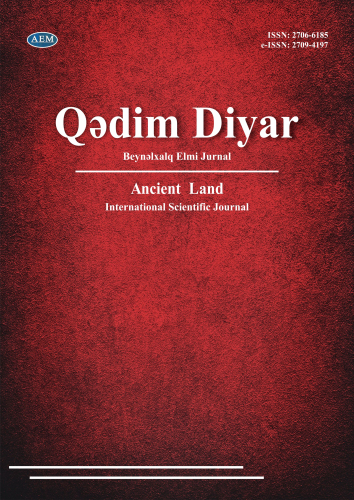DOI: https://doi.org/10.36719/2706-6185/23/59-64
Aytac Alməmmədova
Bakı Dövlət Universiteti
magistrant
DÜNYA TİCARƏT TƏŞKİLATINDA MÜBAHİSƏLƏRİN HƏLLİ SİSTEMİ
Xülasə
Geniş şəkildə qəbul edilir ki, DTT sazişinin çoxtərəfli ticarət sisteminin gücləndirilməsinə verdiyi töhfə Mübahisələrin Həlli Anlaşması (razılaşma) vasitəsilə mübahisələrin həlli üçün effektiv mexanizmin yaradılması ilə əhəmiyyətli dərəcədə artırılıb. Razılaşma əvvəlcədən mövcud olan GATT 1947 sistemində mexanizmin kvazi məhkəmə xarakterini gücləndirən bir neçə yeni xüsusiyyət təqdim etdi. Bunlara mübahisələrin həlli üçün açıq vaxt çərçivələri, şikayət edən tərəfin tələbi ilə panelin demək olar ki, avtomatik olaraq yaradılması hüququ, konsensusla qəbul edilməməsi barədə qərar qəbul edilmədikdə panel hesabatlarının avtomatik qəbulu (“mənfi konsensus qaydası”) daxildir. Panel hesabatlarından şikayətləri dinləmək üçün daimi Apellyasiya Qurumunun yaradılması və panel və Apellyasiya Hesabatlarının həyata keçirilməsi üçün daha güclü prosedurlar, o cümlədən qisas hüququ və müəyyən hallarda çarpaz cavab tədbirləri ilə bağlı xüsusi qaydalar. Bu xüsusiyyətlərə görə razılaşma istənilən beynəlxalq təşkilatda mövcud olan ən sürətli və effektiv mübahisələrin həlli sistemini təmin etmişdir. Yeni çərçivədə, təxminən səkkiz il ərzində çox məhdud müddət ərzində panellər və Apellyasiya orqanı tərəfindən təsirli miqdarda hüquqşünaslıq işlənib hazırlanmışdır.
Bu araşdırmada Dünya Ticarət Təşkilatında mübahisələrə baxılmasının mərhələləri ayrı-ayrılıqda təhlil edilmiş, mübahisələrə baxılmasının normativ əsasını təşkil edən sənədlər, sazişlər və müqavilələr təfsir edilmiş, mübahisə predmeti olan bir neçə iş araşdırılmış və qərarların icra edilməsi prosesi ətraflı şəkildə öz əksini tapmışdır.
Açar sözlər: Dünya Ticarət Təşkilatı, GATT, DTT, Mübahisələrin Həlli Orqanı, Panel, Apellyasiya Orqanı
Aytaj Almammadova
Baku State University
master student
The dispute settlement system of the wto
Abstract
It is widely recognized that the contribution of the DTT Agreement to strengthening the multilateral trading system has been greatly enhanced by the establishment of an effective mechanism for the settlement of disputes through the Dispute Settlement Understanding (the Agreement). The agreement introduced several new features in the pre-existing GATT 1947 system that strengthened the quasi-judicial nature of the mechanism. These include open time frames for dispute resolution, the right to establish a panel almost automatically at the request of a complaining party, and the automatic adoption of panel reports unless a consensus decision is reached (the "negative consensus rule"), the establishment of a permanent Appellate Body to hear appeals from panel reports, and stronger procedures for the implementation of panel and Appeal Reports, including specific rules regarding the right to retaliation and cross-replies in certain cases. Because of these features, the Agreement has provided the fastest and most effective dispute settlement system available in any international organization. Under the new framework, an impressive amount of jurisprudence has been developed by panels and the Appellate Body in a very limited time span of about eight years.
In this study, the stages of handling disputes at the World Trade Organization were analyzed separately, the documents, agreements and contracts that constitute the normative basis for handling disputes were interpreted, several cases that were the subject of disputes were examined, and the process of implementing decisions was reflected in detail.
Keywords: World Trade Organization, GATT, WTO, Dispute Settlement Body, Panel, Appellate Body

